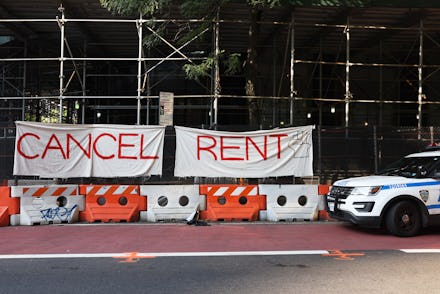Thanks to one judge's ruling, an estimated 6 million people might face eviction

A federal judge on Wednesday ruled against one of the government's most sweeping pandemic responses, claiming that the CDC's temporary moratorium on evictions should be vacated well ahead of its scheduled expiration date.
In a 20-page decision by U.S. District Court for the District of Columbia Judge Dabney Friedrich, the court asserted that the CDC's eviction freeze, based on the medical understanding "that the evictions of tenants could be detrimental to public health control measures to slow the spread of SARS-Cov-2, the virus that causes COVID-19," had been well beyond the purview of the Department of Health and Human Services, which oversees the CDC. Friedrich recommended the moratorium, issued in mid-April, be vacated now rather than at its expiration date in late June.
"It is the role of the political branches, and not the courts, to assess the merits of policy measures designed to combat the spread of disease, even during a global pandemic," Friedrich wrote in the ruling. "The question for the court is a narrow one: Does the Public Health Service Act grant the CDC the legal authority to impose a nationwide eviction moratorium?"
Ultimately, she concluded, "It does not."
While a number of states and smaller jurisdictions have passed their own eviction moratoriums during the coronavirus pandemic — whether for health, or as economic relief for residents struggling with reduced pay and job opportunities over the past year — previous iterations of the CDC's freeze had been ratified by Congress. However, by not ratifying this most recent moratorium, the fate of the order rested solely on the court's interpretation of a decades-old law which affords the CDC authority over issues of isolation and quarantine. And without congressional ratification, Friedrich concluded, the CDC had overstepped its authority.
The Justice Department quickly vowed to appeal the ruling, initially brought by the Alabama Association of Realtors. And while it's unclear exactly how the freeze would be vacated, affording landlords the ability to evict clients means the estimated 6.7 million renters currently behind on their payments could be at risk, with nearly double that number uncertain of whether they can afford next month's rent.